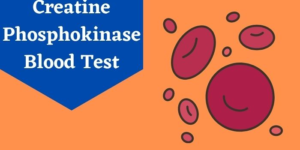Read time 5 minutes
This blog is another opportunity to feel grateful. Thank you, dear Universe, you continue to bless me with recovery and health.
CPK stands for Creatine Phosphokinase. It is an enzyme that is involved in the production of energy for muscle contractions.
Typically, the levels of CPK in the blood are stable. The levels generally increase if there is any sign of muscle disease or damage. By measuring this parameter, the doctors learn the presence of muscle disorders. It includes any muscle trauma or diseases like muscular dystrophy, myositis, etc.

How CPK levels played an important role in my Diagnosis
In 2016, I was diagnosed with a rare disease called Isaacs’ Syndrome. Isaacs’ is a neuromuscular health condition that stems from muscle hyperactivity. In the process, I also discovered that I had Lyme disease. Lyme is a bacterial illness that gets transmitted through ticks.
Glaucoma also accompanied me. Glaucoma is an eye-related disease that damages the optic nerves. And Membranous Glomerulonephritis is a progressive kidney disease. I faced tremendous issues with my gut, stomach acid, and digestive enzymes. During my journey, I also developed Irritable Bowel Syndrome (IBS), Diabetes, Frozen Shoulder, Eczema and Blood Pressure.
The symptoms were visible and played a havoc way before the actual diagnosis was done. I had continuous body weakness, weight loss, fever, and diarrhea. Initially, the doctors thought it was my poor blood and urine health indicators.
They put me on medications for various vitamin deficiencies and bad cholesterol. My condition went from bad to worse within a couple of months. Soon, I developed walking difficulties with an increase in body pain and weakness. Any position while lying down, sitting, or standing became uncomfortable.
My notorious symptoms led to a heightened sense of uncertainty. The situation made me vulnerable to creating further complications. The sudden list of alien diverse symptoms and mood swings made it even more challenging to cope. I was overwhelmed by the waves of difficult emotions, and physical limitations.
At such times, the doctor decided to test my CPK levels. This blood test could check certain enzymes that could show a neuromuscular disease. Generally, it is an indicator to muscular injury or stress. We discovered that my CPK levels were very high. The report declared a serious health problem and a need for medical attention.
I was immediately hospitalized for a detailed medical evaluation and treatment. My key symptoms provided the roadmap to all the clinical tests. The objective was to prognostically suspect the lesions. The tests included EMG, PET scan, MRI, and lumbar spine ultrasonography. Also, my kidney biopsy, and antibody tests like GAD and Caspr2, with common urine and blood tests were done.
These assessments were performed to get information about any neurologic deficits. They checked various parameters and showed true weakness from poor endurance. They also helped to find out if muscles are responding the right way to nerve signals. The key was to help the doctors gauge if my symptoms were caused by a muscle disorder or a nerve problem.
The results confirmed me as rare. The doctors finally gave my symptoms a socially constructed label of Isaacs’ Syndrome.
Understanding Creatine Phosphokinase (CPK) Levels
Creatine Phosphokinase (CPK) is an enzyme that helps to regulate the production of energy for muscle contractions, and metabolism. It is involved in the production of ATP (adenosine triphosphate). ATP acts as the energy source for muscle contractions.
The CPK test is a blood test that measures its level in the blood. High CPK levels can cause stress or damage to the tissues that contain the enzyme. Generally found in the heart, brain, and muscles. There are other factors like some medicines, genetic variations, and strenuous exercises. The CPK test is used as a clinical investigation to diagnose various conditions. Health conditions such as muscular dystrophy, myositis, etc.
Measuring CPK becomes important in diagnosing muscle-related disorders.
Is there a Link between CPK Levels and Isaacs Syndrome?
Isaacs syndrome is a rare disorder that causes cramps, body stiffness, and twitching. It is an autoimmune disease with a list of other symptoms like fatigue, and weakness. Isaacs can be inherited or acquired. It is also associated with cancers.
The link between Isaacs Syndrome and CPK is not well established. However, it is one of the parameters that show something wrong with the muscle activity.
In my case, to begin with, I am trying to sleep, and suddenly there goes tic, tic. It went unrested as the frequency was at least once every 30 seconds and it went on for hours together. Throughout my body, the muscles rippled like something was moving under my skin. It involved different muscles and slowly, became more noticeable. It tensed my muscles, specifically the calf or bicep area made me miserable. The movements were involuntary.
I slowly developed progressive functional problems. Even walking became difficult. I had immense weakness and pain while sitting, climbing stairs, stiffness, and walking.
I had little idea that my symptoms like fatigue, pain, and stiffness were by-products of Isaacs.
The doctors tested my CPK levels and found them extremely abnormal. It signaled muscular injury and inflammation.
I was hospitalized for a proper medical evaluation. The clinical tests included EMG, PET scan, MRI, and lumbar spine ultrasonography. Among others were kidney biopsy, and antibody tests like GAD and Caspr2. Electromyography (EMG) was an important test. It evaluated the health condition of the nerve and muscles identifying muscle disorders.
The increased CPK correlated with the misfunctioning of the muscle fibers and motor. With time, the doctors confirmed the presence of Isaacs Syndrome.
There were no specific medicines given for CPK levels. The underlying idea was to treat Isaacs’ Syndrome and Membranous Glomerulonephritis.
The treatment included:
- Painkillers, immunosuppressants, steroids, and sleeping pills.
- Oral and intravenous antibiotics and anticonvulsant medication.
- Blood thinners, statins, and beta blockers.
- Corticosteroids and Diuretics.
- For Gut issues, some probiotics.
- IVIG and Plasma exchange therapy from time to time.
- Food Supplements.
- Homeopathic and Ayurvedic medicines.
I tried some helpful Natural ways to lower my CPK levels
- Included a piece of raw Garlic on a daily, empty stomach basis.
- Added Omega-3 supplements.
- Reduced salt and heavy protein intake.
I noticed an improvement in my CPK with improving overall muscle health.
To Conclude
CPK (Creatine Phosphokinase) levels play a crucial role in muscle metabolism. It is an important indicator of muscle health.
There is a role and significance of CPK levels in diagnosing muscle-related disorders. It helps healthcare professionals to better interpret and make informed decisions about disease management.
CPK levels surely had a role to play in my muscle-related injury. It helped my diagnosis of Isaac syndrome and Membranous Glomerulonephritis.
I encourage my readers to be aware of the CPK levels if they have any muscle health issues. It is a simple blood test that does not need any special preparation. Your healthcare provider will suggest if any treatment is needed.
DISCLAIMER
The views expressed above in this article are the author’s own and do not represent any kind of medical advice.


